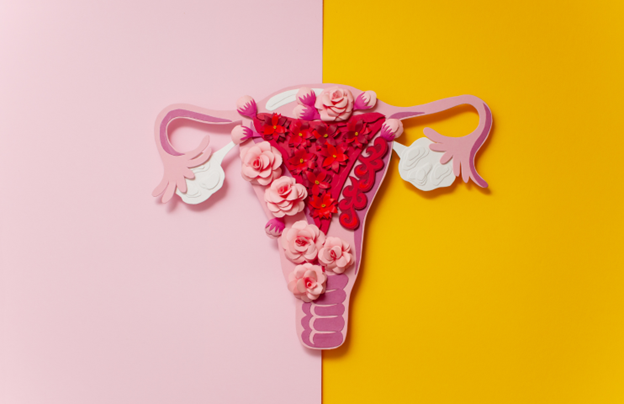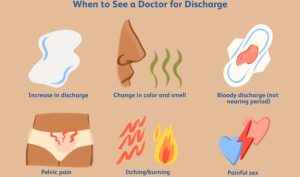You’ve been diagnosed with endometriosis and now you’ve questions like, can you still get pregnant? Will it take longer? Do you need to try for a baby sooner rather than later?
These are all common concerns, and understandably so. Endometriosis can have an impact on fertility for some women, but the good news is there are treatment options available that can improve your chances of getting pregnant when the time is right for you.
Let’s start by understanding exactly how endometriosis can impact your fertility and what you can do about it.

Do You Have Endometriosis? Here’s How It Can Affect Your Fertility
Do you struggle with painful periods, infertility, or painful sex? You may have endometriosis. This condition causes tissue similar to the lining of the uterus to grow outside of the uterus, often on the ovaries, fallopian tubes, and pelvic lining.
Endometriosis can have a major impact on your fertility and family planning. The misplaced endometrial tissue can cause inflammation and scarring, blocking the fallopian tubes and making it difficult for an egg to be fertilized or for an embryo to implant. In some cases, it may lead to ovarian cysts or damage.
The severity of endometriosis can range from minimal to severe. If you have been diagnosed with endometriosis, the best way to improve your fertility is through medical or surgical treatment. Medications like pain relievers, hormonal birth control, or gonadotropin-releasing hormone (GnRH) agonists may help relieve symptoms and slow the progression. Laparoscopic surgery can remove endometrial tissue and scarring to restore fertility.
Don’t lose hope! Even with endometriosis, many women are still able to get pregnant. Work closely with your doctor to develop a treatment plan tailored to your needs and goals. While endometriosis may make conceiving more difficult, with the right approach, you can overcome the challenges and start the family you’ve always dreamed of.
However, stay positive, focus on self-care, and know that there are many resources and a strong support system to help you through this.
Treatment Options for Endometriosis: How to Improve Your Chances of Getting Pregnant
Are you struggling to get pregnant because of endometriosis? The good news is there are treatment options that can help improve your fertility.
First, hormone therapy may help relieve pain and reduce inflammation from the condition. Birth control pills, patches, or vaginal rings provide pain relief by suppressing menstruation. GnRH agonists shrink endometrial implants. While effective, hormone therapy does temporarily halt ovulation.
Laparoscopic surgery is another common treatment. During this minimally invasive procedure, a surgeon destroys or removes endometrial tissue and cysts. For many women, surgery provides fast relief from pain and a window of increased fertility for several months after. To maximize your chances, try conceiving soon after surgery.
In vitro fertilization (IVF) bypasses potential fertility issues from endometriosis. During IVF, eggs are retrieved, fertilized in a lab, and implanted into the uterus. Using IVF, you have a better chance of getting pregnant even if endometriosis is present or has damaged the fallopian tubes. While expensive, IVF may be covered by insurance if other treatments have failed.
The impact of endometriosis on fertility can be significant, but the good news is there are effective options for relieving symptoms and improving your odds of conceiving. By working closely with your doctor, you can find the right treatment plan and start building the family you’ve always dreamed of. Stay hopeful – with the right treatment, pregnancy is possible.
Planning for Pregnancy When You Have Endometriosis: Tips for Success
Planning for pregnancy when you have endometriosis can be challenging, but with the right tips and medical guidance, you absolutely can achieve success. Here are some key things to keep in mind:
Track your menstrual cycle
To increase your chances of conception, pay close attention to your cycle and ovulation. Use an ovulation predictor kit to identify your most fertile days. Have intercourse during this window, especially in the 1-2 days leading up to and on the day of ovulation. This can help ensure viable sperm are present when an egg is released.
See an endometriosis specialist
Work closely with a doctor who specializes in endometriosis and infertility. They can develop a customized treatment plan to optimize your fertility, which may include pain management techniques, hormone therapy, and laparoscopic surgery to remove endometrial lesions and scar tissue if needed. They can also discuss assisted reproductive technologies like intrauterine insemination (IUI) or in vitro fertilization (IVF) if other methods are not successful.
Consider fertility drugs or IUI
For some women with endometriosis, fertility drugs alone or combined with IUI can help increase the chances of pregnancy. Fertility drugs stimulate the ovaries to produce multiple eggs, and IUI injects sperm directly into the uterus to facilitate fertilization. While these methods do not treat endometriosis itself, they can enhance fertility temporarily.
Stay positive and patient
Try not to get discouraged if pregnancy does not happen quickly. Endometriosis can complicate things, but many women are still able to conceive naturally or with fertility treatments. Stay optimistic, follow the advice of your doctor, and don’t hesitate to ask questions or discuss any concerns you may have. With time and perseverance, you can overcome the challenges of endometriosis.
So, there you have it, the inside scoop on how endometriosis can affect your fertility and family planning. The bottom line is that while endometriosis may make getting pregnant more difficult for some, the good news is that with proper diagnosis and treatment, most women with endometriosis can still conceive and have healthy pregnancies.
The key is to talk to your doctor right away if you experience symptoms like painful periods or pain during sex. Don’t wait until you’re ready to start trying for a baby. Get the right diagnosis and treatment plan in place as early as possible to give yourself the best chance of overcoming any fertility challenges.
And remember, you are not alone in this – many women face endometriosis and fertility issues, so connect with support groups to share advice and encouragement. Together we’ve got this! Stay positive, follow your treatment plan, and keep the hope alive. Your perfect little family is out there waiting for you.







